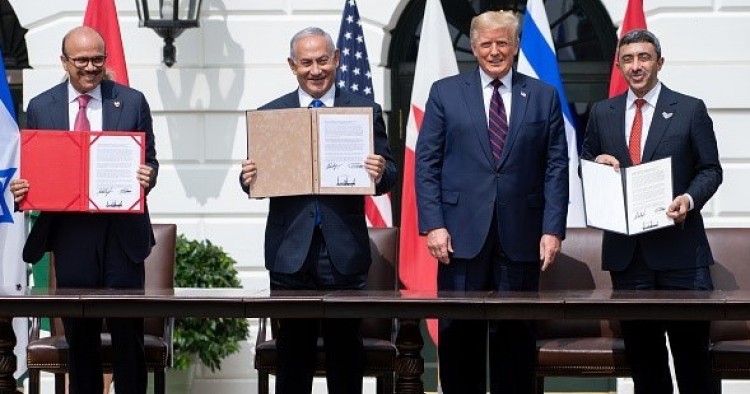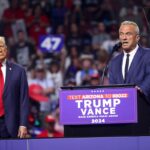Blog Post
Joel C. Rosenberg explains how Donald Trump transformed the Middle East
By Jonathon Van Maren
Joel Rosenberg is the New York Times bestselling author of fifteen novels and five works of non-fiction, and his books have been read, he told me, by senators, spy chiefs, governors, presidents, prime ministers, kings, and crown princes. Despite that, perhaps the strangest experience he’s had is telling President Donald J. Trump to his face that he was once “Never Trump” in the Oval Office. Based on Trump’s expression, Rosenberg told me with a chuckle, “nobody had ever used that phrase in front of him before.” I suspect that’s probably true.
I spoke with Rosenberg earlier this month about his new book Enemies and Allies: An Unforgettable Journey inside the Fast-Moving & Immensely Turbulent Modern Middle East. Over the past several years, Rosenberg has met with Saudi Crown Prince Mohammad bin Salman (MBS), Egyptian President Abdel Fattah el-Sisi, Jordanian King Abdullah II, United Arab Emirates’ Crown Prince Mohammed bin Zayed (MBZ), former Israeli prime minister Benjamin Netanyahu, and Israeli President Reuven Rivlin. It is a staggering cast of characters representing nearly every major player in the Middle East.
“Nobody else has this story,” Rosenberg told me. “Nobody else has been able to meet, face to face, with these leaders and get invited into their inner sanctums.” Despite the best efforts of scores of journalists, many of the stories Rosenberg tells are stories he got before anybody else. During a meeting with MBZ, for example, the UAE leader told him that he was planning to normalize relations with Israel—but Rosenberg couldn’t say a word at the time. He faced the press after the meeting with the scoop of a lifetime and held his silence–until now.
Rosenberg believes that the Abraham Accords—in which Israel normalized relationships with the UAE, Bahrain, Sudan and Morocco—should have earned Trump and Netanyahu the Nobel Peace Prize. I asked Rosenberg if the peace deals were the simply luck of amateurs, or an actual reset, and he noted that conversations with both Secretary of State Mike Pompeo and Vice President Mike Pence alerted him to the fact that America was willing to throw out the failed playbook of previous administrations and try something fresh. “The Trump approach worked,” Rosenberg told me. He told Trump that, too, and in the process told the president that he’d previously been “Never Trump” but had changed his mind.
How did Rosenberg get so many scoops and ground-breaking interviews? He isn’t sure. His relationship with King Abdullah II of Jordan, for example, came about when one of the king’s consultants read the Rosenberg novel in which the king is at the centre of an assassination plot. Instead of being offended, the king invited Rosenberg for a visit and the two became friends. Fascinatingly, Abdullah II is a 41st generation direct descendant of the Prophet Mohammed, who was of course descended from Abraham’s son Ishmael. In the Middle East, the conflicts really are still family feuds between the descendants of the sons of Abraham.
Rosenberg’s book is readable, insightful, and packed with unique stories, an inside look at how the Abraham Accords came out and how the Middle East’s major players interact with one another. Rosenberg is not objective, and he is not a journalist—he does not, for example, press MBS on the assassination of Washington Post journalist Jamal Khashoggi. He clearly does not see it as his place to do so. But as a primer on the dangers posed by Iran and her allies and the rapidly changing relationships between Israel and her neighbors, Rosenberg’s book is well worth your time. Rosenberg’s novels are always fast-paced thrillers. Enemies and Allies, in my view, outdoes them all.








